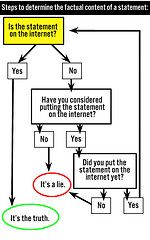1.2 Paco still hasn't found what he's looking for
Watch the video on the left paying attention to the tenses used in the famous song "I still haven't found what I'm looking for", by U2. Then listen to it again on the right, as you will be able to read the lyrics at the same time the song is sung.
What has Bono, the singer, done to be with her beloved?
As happened with the article read by Paco on the web, all the actions in the song refer to complete actions. However, the time in which they were complete is not specified in none of them. On this occasion, the singer tells us all the actions he has done to be with his beloved: he has climbed the highest mountain, he has run through the fields, he has run, he has crawled, he has scaled those city walls, etcetera, just to be with her. However he still hasn't found what he is looking for.
He tells us all those actions have been completed by him, but since he does not specify the moment in the past when he achieved them, he uses the Present Perfect Tense.
Taking that into account, we can say that the main difference between the Present Perfect and the Past Simple is...
| Present Perfect | Past Simple |
|
- The action is complete or lasts up until now - The moment is not specified |
- The action started and finished in the past - The speaker knows when the action took place or the moment is specified. |
Do you want to watch another video? The video on the left perfectly explains the differences between both tenses.
|
|
And if you want to read an even easier explanation, click here.
Now, it's time for you to practice. In order to do so, click the links below to complete some exercises on the web. Complete them in order, since they have been chosen paying attention to the degree of difficulty.
| Exercise 1 | Exercise 2 | Exercise 3 |

|
| By seanbonner. C. Commons |
Complete the passage with the Present Perfect or Past Simple tenses of the verbs in the box. Use the words in brackets when required.
| be (twice) - go - tell - do - see - stay - write - land |
1. The plane in Sierra Leone three hours ago.
2. His friends (never) him the truth when they first met.
3. Several days ago, Paco in South Africa, now he is in Sierra Leone. He (never) to Africa before.
4. Paco in Africa for three weeks. He (not) his friends since he left for England.
5. On some occasions, Paco fishing with one of his father's best friends.
6. you (ever) a letter to your friends when abroad? Paco it yesterday.